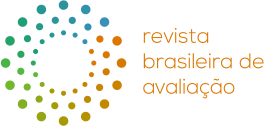The role of monitoring, evaluation, and research units in an increasingly turbulent world
Mine Pabari, Ian Goldman
Abstract
This paper explores the role of knowledge brokers in facilitating the use of evidence in an increasingly uncertain and crisis-ridden world. It is based on case study research in 5 countries of Africa and the ECOWAS region of West Africa, where successful efforts to use evidence emerged. These case studies were based on an analytical framework developed on evidence use, building on the work of Michie et al., (2011), Buk-Berge et al., (2011), and Langer et al., (2016). This analytical framework draws out the mechanisms which trigger use, and the interventions applied to facilitate use. A key issue that emerged is that those commissioning or undertaking evidence generation, need to understand the context, the wider system and become adept at acting as knowledge brokers, roles often underestimated and under-resourced, and three knowledge broker roles are suggested of facilitators and linkage agents, capacity builders and knowledge managers. What this shows is that at least in South Africa some of these roles are recognised, but that the analytical skills to analyse and use evidence is missing, as well as the softer skills to facilitate dialogue and build relationships, key for policy makers to trust and have the motivation to use evidence.
Keywords
Referências
Abreu Saurin, Tarcisio. (2021). A complexity thinking account of the COVID-19 pandemic: Implications for systems-oriented safety management. Safety Science, 134, 105087. http://dx.doi.org/10.1016/j. ssci.2020.105087
Amisi, Matodzi M., Awal, Mohammed S., Pabari, Mine, & Bedu-Addo, D. (2021). How relationship and dialogue facilitate evidence use: Lessons from African countries. African Evaluation Journal, 9(1), http:// dx.doi.org/10.4102/aej.v9i1.559
Buk-Berge, Elisabeth., Gough, David, Kenny, Caroline, & Tripney, Janice. (2011). Evidence informed policymaking in education in Europe: EIPEE final project report. London: EPPI-Centre, Social Science Research Unit, Institute of Education, University of London.
Department for International Development – DFID. (2009). Political economy analysis how to note, Retrieved in 2022, December 12, from https://www.gsdrc.org/docs/open/po58.pdf
Goldman, I., & Pabari, M. (2020). An introduction to evidence-informed policy and practice in Africa. In I. Goldman & M. Pabari (Eds.), Using Evidence in Policy and Practice (1st ed., pp. 13–33). Abingdon, Oxon ; New York, NY : Routledge, 2020. https://doi.org/10.4324/9781003007043-2
Goldman, Ian, Olaleye, Wole, Sixolile, Stanley, Mokgoropo Makgaba, Ntakumba, & Waller, Cara. (2020). Mere compliance or learning—M&E culture in the public service of Benin, Uganda and South Africa. In Ian Goldman & Mine Pabari (Eds.), Using evidence in policy and practice: Lessons from Africa. London: Routledge, Taylor & Francis Group.
Goldman, Ian, Pabari, Mine, & Amisi, Matodzi. (2021). The importance of knowledge brokering for evidence use in Africa. South Africa: CLEAR Anglophone Africa.
Harari, Yuval Noah. (2018). 21 lessons for the 21st century. New York: Jonathan Cape.
Johnson, Kelli, Greenseid, Lija O., Toal, Stacie A., King, Jean A., Lawrenz, Frances, & Volkov, Boris. (2009). Research on evaluation use: A review of the empirical literature from 1986 to 2005. The American Journal of Evaluation, 30(3), 377-410. http://dx.doi.org/10.1177/1098214009341660
Langer, Laurenz, & Weyrauch, Vanessa. (2021). Using evidence in Africa: A framework to assess what works, how and why. In Ian Goldman & Mine Pabari (Eds.), Using evidence in policy and practice: Lessons from Africa (pp. 34-53). London: Routledge, Taylor & Francis Group.
Langer, Laurenz, Goldman, Ian, & Pabari, Mine. (2020). Analytical framework used to guide case study research. In Ian Goldman & Mine Pabari (Eds.), Using evidence in policy and practice: Lessons from Africa. London: Routledge, Taylor & Francis Group.
Langer, Laurenz, Tripney, Janice, & Gough, David. (2016). The science of using science: Researching the use of research evidence in decision-making. London: University of London, Social Science Research Unit, & Evidence for Policy and Practice Information and Co-ordinating Centre.
Langer, Laurenz. (2021). Using evidence in Africa: A framework to assess what works, how and why. South Africa: CLEAR Anglophone Africa.
Meadows, Donella, & Wright, Diana. (2008). Thinking in systems: A primer. Local White River Junction, VT: Chelsea Green Pub.
Michie, Susan, van Stralen, Maartje, & West, Robert. (2011). The behaviour change wheel: A new method for characterising and designing behaviour change interventions. Implementation Science : IS, 6(1), 42. PMid:21513547. http://dx.doi.org/10.1186/1748-5908-6-42
OECD. (2017). Debate the issues: Complexity and policy making. Paris: OECD. https://doi. org/10.1787/9789264271531-en
Pabari, Mine, & Goldman, Ian. (2020). Using evidence in policy and practice: Lessons from Africa. London: Routledge, Taylor & Francis Group.
Pabari, Mine, Tessema, Yemeserach, Abdalla, Amina, Wakhungu, Judi, Odhowa, Ahmad Hassan, & Kaka, Ali. (2020). Parliament and public participation in Kenya: The case of the Wildlife Conservation and Management Act 2013. In Ian Goldman & Mine Pabari (Eds.), Using evidence in policy and practice: Lessons from Africa. London: Routledge, Taylor & Francis Group
Patton, Michael Quinn. (1998). Discovering process use. Evaluation, 4(2), 225-233. http://dx.doi. org/10.1177/13563899822208437
Samea Evaluation Hackathon – SAMEA. (2022). Retrieved in 2022, December 12, from https://www.samea. org.za/evaluation-hackathon-reports
Snowden, Dave. (2018). Complex adaptive systems. Retrieved in 2022, December 12, from https://youtu. be/l4-vpegxYPg
The Department of Planning, Monitoring and Evaluation. (2022). Retrieved in 2022, December 12, from https://www.dpme.gov.za/advertisements/Vacancies/DPME%20Vacancy%20Closing%2026%20April%20 2022.pdf
The Department of Planning, Monitoring and Evaluation. (2021). Retrieved in 2022, December 12, from https://www.dpme.gov.za/advertisements/Vacancies/DPME%20Vacancies%20Closing%2003%20May%20 2021.pdf
Tomori, Cecília. (2021). Scientists: Don’t feed the doubt machine. Nature, 599(7883), 9. PMid:34728805. http://dx.doi.org/10.1038/d41586-021-02993-7
Twende Mbele. (2022). Retrieved in 2022, December 12, from https://twendembele.org/ Woodhill, Jim. (2022). Foresight and systems change: An introduction (Draft). [Unpublished].
Submetido em:
12/12/2022
Aceito em:
29/03/2023

